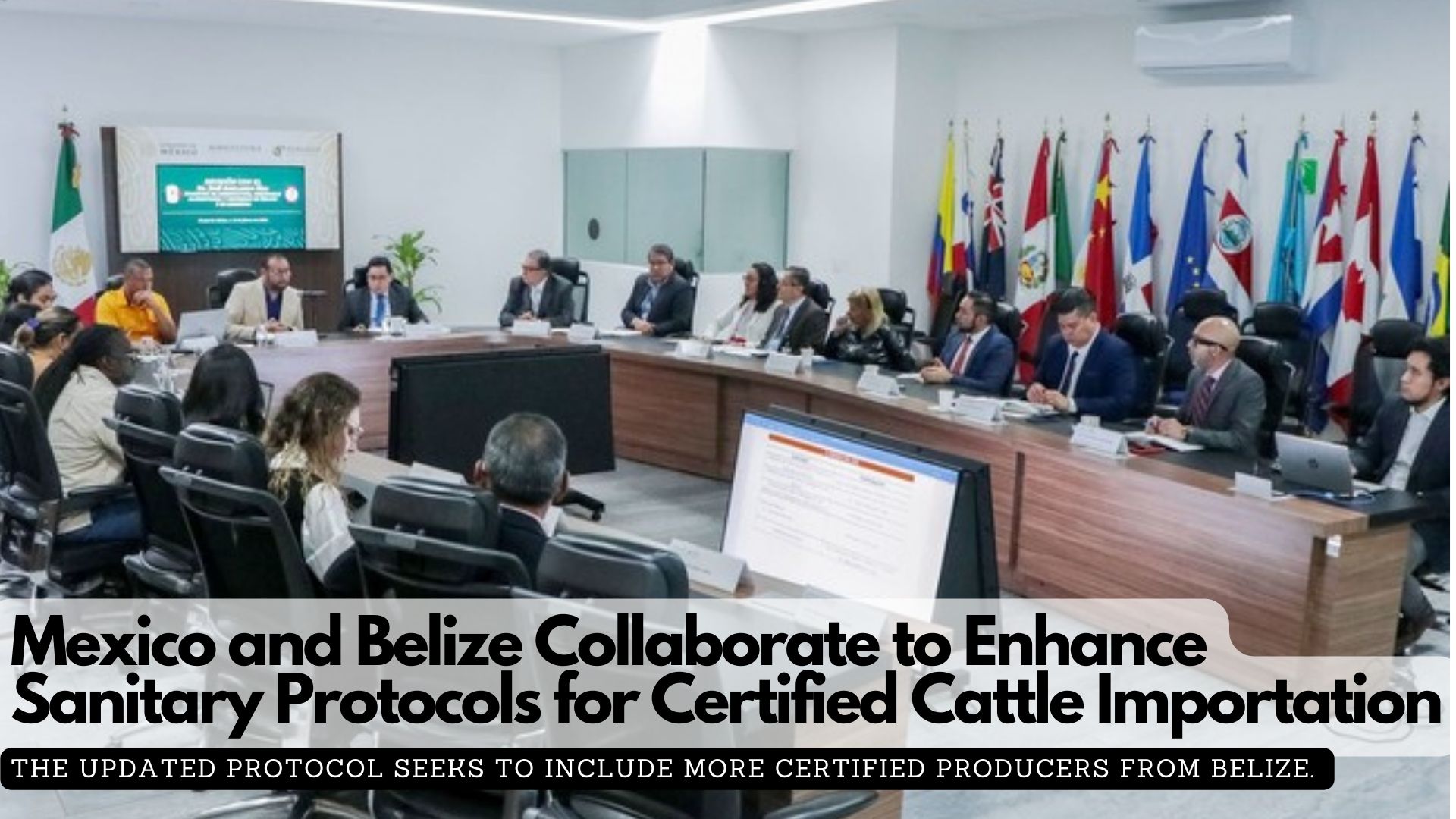The Ministry of Agriculture and Rural Development is aiding Central American nations by sharing advanced techniques and technologies to bolster their agricultural, livestock, aquaculture, and fisheries sectors.
To facilitate the safe importation of cattle from Belize to Mexico for immediate slaughter and terminal fattening, thereby strengthening the domestic industry’s raw material supply, the agriculture ministries of both countries are developing a sanitary control mechanism. This mechanism aims to ensure the cattle are free from pests and diseases of quarantine significance.
Currently, Mexico imports around five thousand certified cattle annually from Orange Walk County, Belize, under an existing import protocol validated by the Central American health authority.
The updated protocol seeks to include more certified producers from Belize. These producers must demonstrate through clinical tests that their cattle are free from bovine tuberculosis (Tb), brucellosis (Br), and ticks and pass a sanitary inspection conducted by Mexican veterinarians.
Elizalde emphasised that Senasica’s mission is to protect agri-food production and facilitate the trade of healthy and safe products for national supply, building bridges rather than closing borders.
Agriculture supports small and medium-scale producers in Central America by sharing techniques and technologies that enhance their agricultural, livestock, aquaculture, and fisheries development.
The meeting also addressed the cattle screwworm threat in Panama and Costa Rica, which poses a risk to regional livestock. Health authorities are urged to collaborate and allocate resources to prevent the insect’s northward spread. Mexico has proposed a pest eradication plan to the International Regional Organisation for Plant and Animal Health (OIRSA) to halt its advance before it reaches Nicaragua.
The General Coordination of International Affairs of the Ministry of Agriculture reaffirmed the priority of its relationship with Belize, committing ongoing support from the ministry’s technical and scientific institutions to their Central American counterparts.
Minister José Abelardo Mai highlighted that Belize, with over 5,400 livestock producers, primarily small-scale, sees livestock exports as a key opportunity for community development. He noted improvements in Belize’s livestock sector through the acquisition of Mexican stallions, better grass varieties, and infrastructure investments.
Mai also acknowledged the significant contributions of the National Institute of Forestry, Agricultural, and Livestock Research (INIFAP) in boosting the production of soybeans, soursop, coconut, and pitahaya in Belize.
On the topic of cattle screwworm, Mai, a veteran of eradication efforts 30 years ago, announced plans for an awareness campaign and a fund to support regional health initiatives.
The meeting was attended by key officials, including Senasica’s general director of Animal Health, Juan Gay Gutiérrez, and of Plant and Animal Health Inspection, Jorge Luis Leyva Vázquez, as well as Belizean representatives such as the director of the Citrus Revitalization and Diversification Programme, Hugh O’Brien, the general director of the Belize Agricultural Health Authority (BAHA), Zoe Zetina, and BAHA’s director of Animal Health, Roxanna Álvarez.
